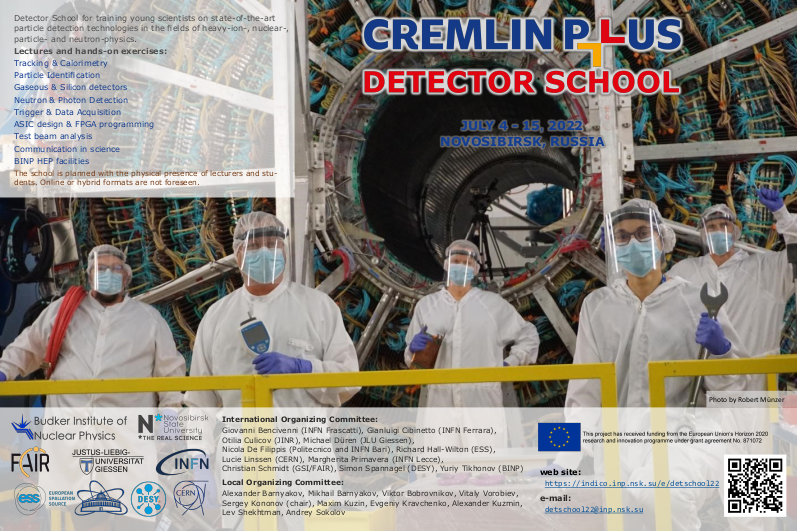Due to the war in Ukraine, all CREMLINplus activities are frozen and the CREMLINplus Detector School cannot be realised. We feel sympathy for all victims of the conflict and hope for the soonest end of it.
The school for young scientists on particle detector technologies will take place at the Budker Institute of Nuclear Physics in Novosibirsk, Russia on July 4-15, 2022. The school is organized in the framework of the CREMLINplus project supported by the European Union's Horizon 2020 research and innovation programme. The working language of the school is English.
About CREMLINplus: https://www.cremlinplus.eu/
The application call is finished. The student admission announcement will be made by mid-March.
Please note in case the COVID-19 pandemic will not allow us to organise the school with the physical presence of participants and lecturers, the school will be postponed.
International organizing committee:
Giovanni Bencivenni (INFN Frascatti), Gianluigi Cibinetto (INFN Ferrara), Otilia Culicov (JINR), Michael Düren (JLU Giessen), Nicola De Filippis (Politecnico and INFN Bari), Richard Hall-Wilton (ESS), Lucie Linssen (CERN), Margherita Primavera (INFN Lecce), Christian Schmidt (GSI/FAIR), Simon Spannagel (DESY), Yuriy Tikhonov (BINP)
Local organizing committee:
Alexander Barnyakov, Mikhail Barnyakov, Viktor Bobrovnikov, Vitaliy Vorobiev, Sergey Kononov, Evgeniy Kravchenko, Alexander Kuzmin, Lev Shekhtman, Andrey Sokolov






